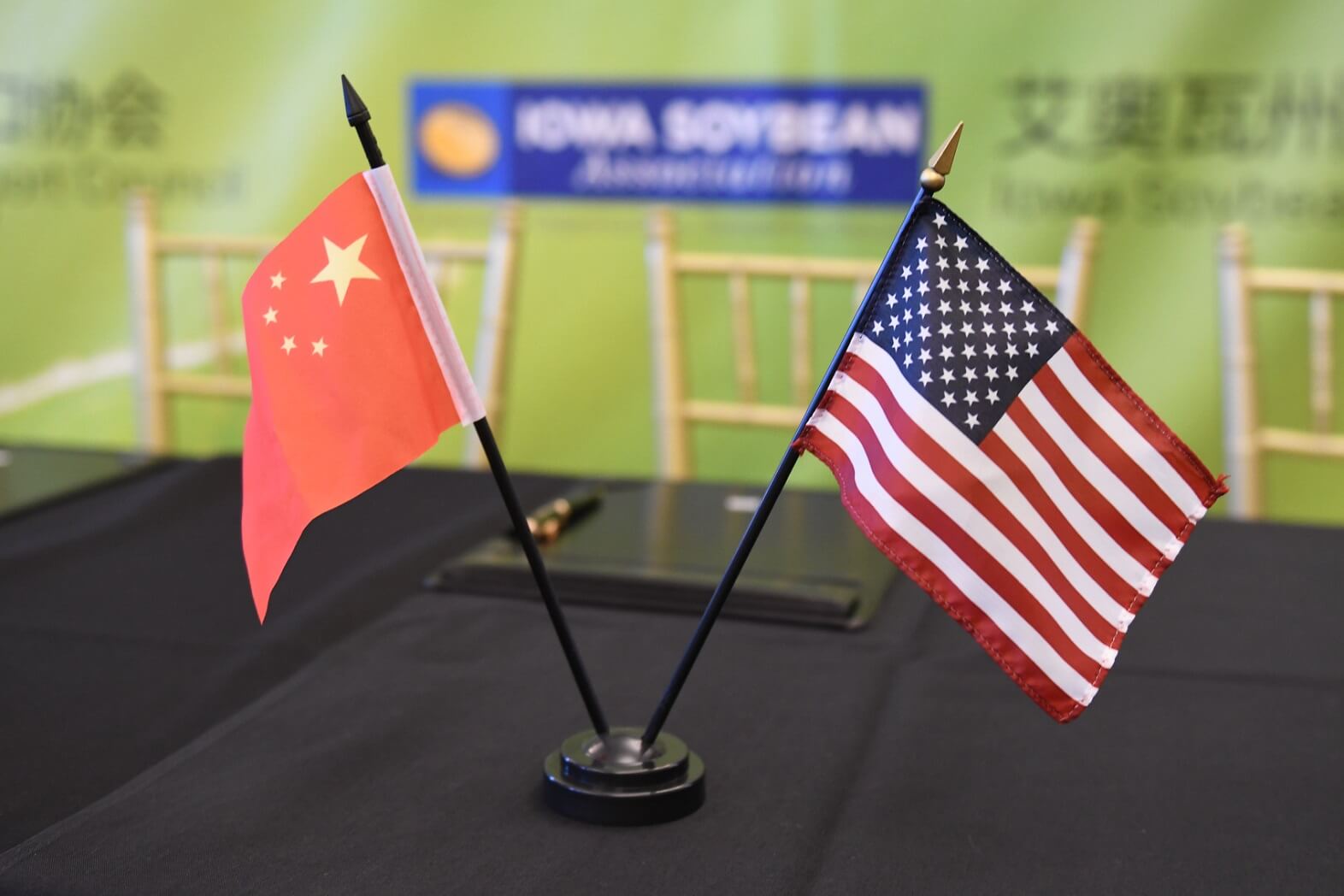
(Photo Credit: Joseph L. Murphy/Iowa Soybean Association)
Iowa Soybean Leaders Stress Need for Trade in Meeting with U.S. Secretary of State Pompeo
July 17, 2020
Iowa Soybean Association President Tim Bardole of Rippey and ISA District 5 Director Morey Hill of Madrid are participating this afternoon in an agricultural roundtable hosted by U.S. Secretary of State Mike Pompeo.
The following statement is courtesy of Bardole who raises soybeans, corn and pigs with his family on their diversified Greene County farm.
The importance of agricultural trade isn’t a talking point for Iowa soybean farmers. It’s reality and the proof is in the numbers. As the export of U.S. soybeans and other agricultural products has hit the skids, so, too have the economic fortunes of farm families and the communities who depend on them to survive and thrive.
We’ve had tough times in agriculture before. The past three years, however, have been particularly challenging. Farm income is off more than 50% since 2013. From 2017 to 2019, U.S. producers saw a 13% decline in soybean export values. Soybean export values for 2020 are currently running nearly 16% lower.
Earlier this year, U.S.-China Phase One trade agreement was announced. In the deal, China pledged to purchase $36.5 billion worth of American agriculture products in 2020 and $43.5 billion in 2021. This was up from $24 billion in 2017, before the trade deal. However, according to Iowa State University Economist Dermot Hayes, China needs to import an additional 18.5 million metric tons (570 million bushels) of U.S. soybeans, as well as other agricultural products from now until the end of the calendar year to meet this 2020 target.
In addition to ramping up purchases of U.S. soybeans and other agricultural products, the Phase-One agreement outlines a more predictable, efficient, science- and risk-based regulatory process for agriculture biotechnology products, improvements to sanitary and phytosanitary measures, and intellectual property protection for agriculture.
The implementation of this important trade agreement must remain a top priority if we are to improve the economic conditions currently impacting U.S. farmers. In the meantime, we’ll continue to build market relations and sales with additional countries who value the quality and reliability of U.S. soybeans.
We also urge the administration to renew its support of renewable fuels and monitor currency depreciation and manipulation taking place in key soybean producing countries that place U.S. ag products at a price disadvantage in the global marketplace.
The Iowa Soybean Association is Driven To Deliver market demand, production research, information and insights and regulatory action benefiting Iowa's 37,000 soybean farmers and the industry. For more information, visit iasoybeans.com.
Back